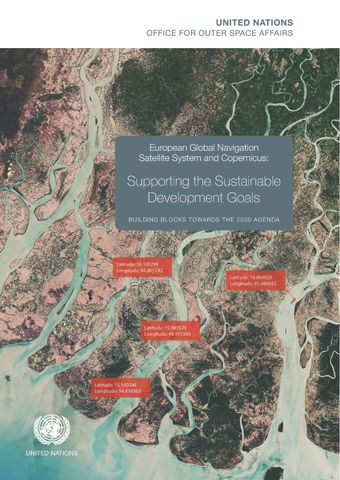European Global Navigation Satellite System and Copernicus
Supporting the Sustainable Development Goals - Building Blocks Towards the 2030 Agenda

Abstract
This report investigates how European Union space technologies support the fulfilment of the SDGs. It has been jointly prepared by the United Nations Office for Outer Space Affairs (UNOOSA)—in charge of promoting international cooperation in the peaceful use and exploration of space, and in the utilization of space science and technology for sustainable economic and social development—and the European GNSS Agency (GSA), which is the European Union agency operating EGNOS and Galileo and is in charge of ensuring the maximization of socioeconomic benefits from the use of the European Union satellite navigation systems. The analysis shows that all the SDGs are positively impacted by the benefits stemming from the use of European Global Navigation Satellite Systems (EGNSS) and Copernicus applications and, out of the 169 indicators associated, 65 (almost 40 per cent) directly benefit from using the EGNSS and Copernicus services, either helping monitor the status of achievement of a given SDG or actively contributing to its fulfilment.


